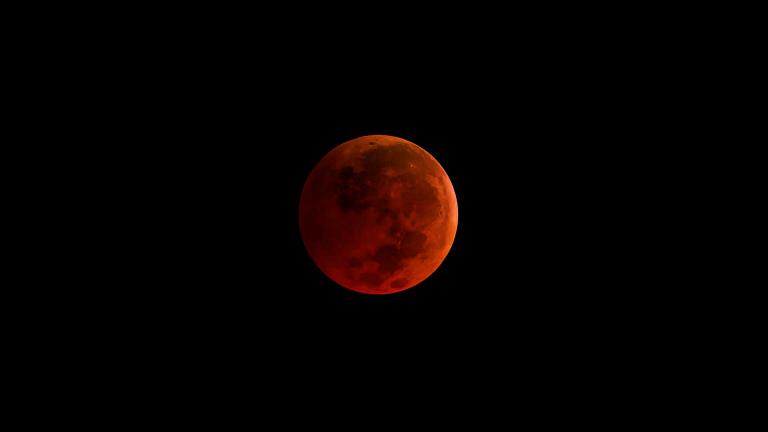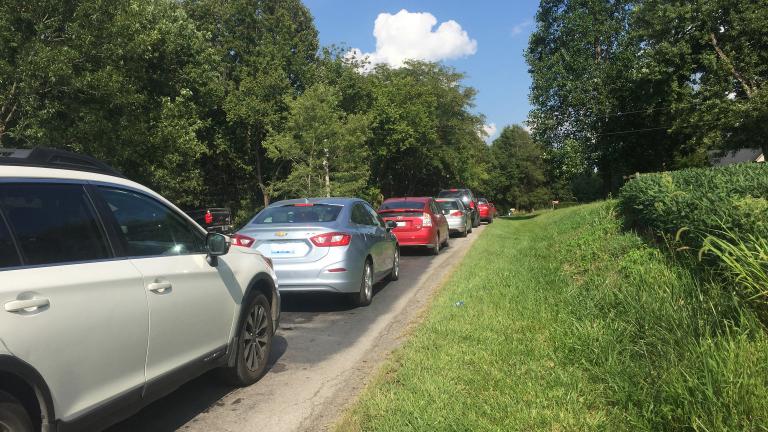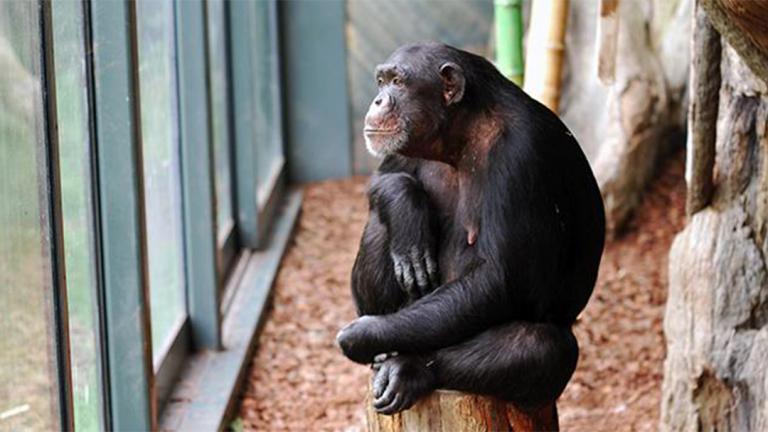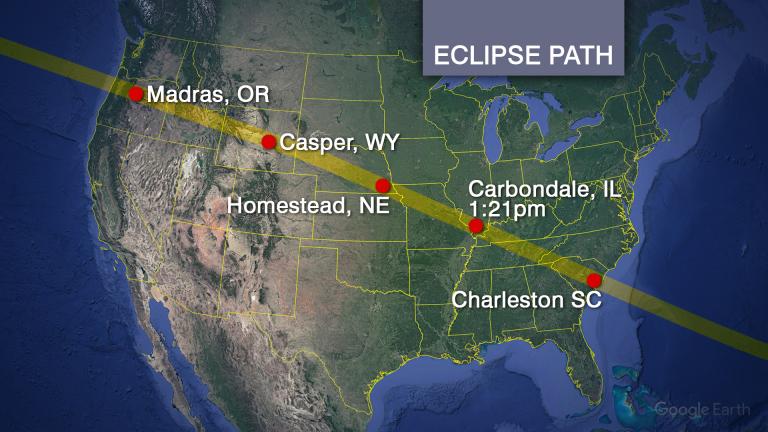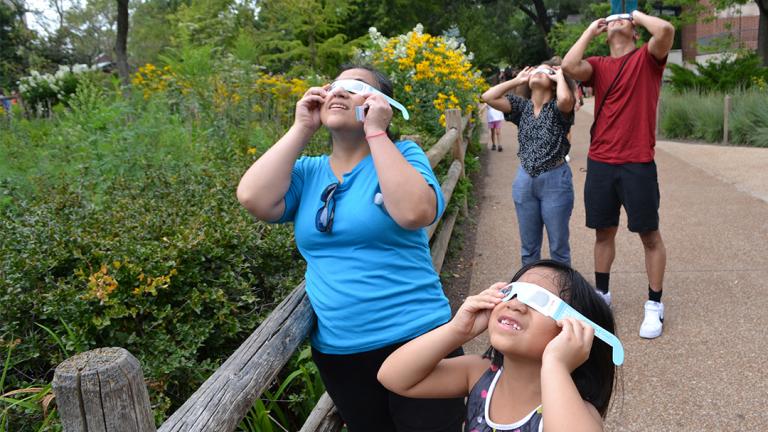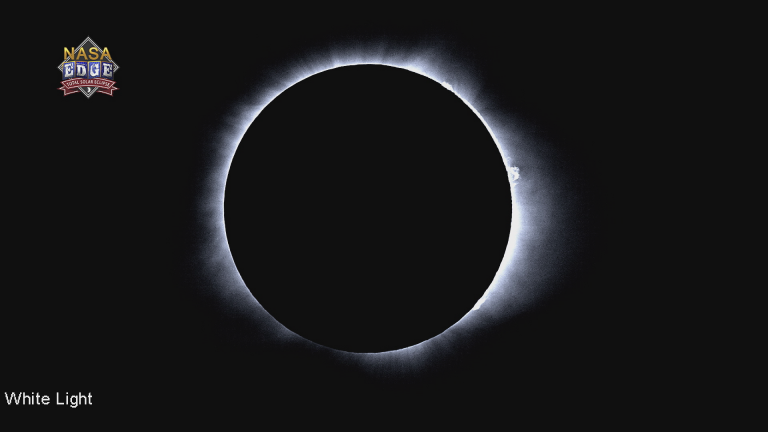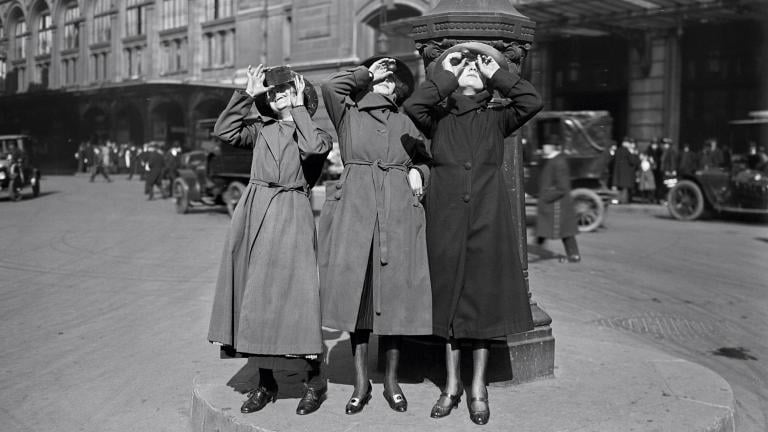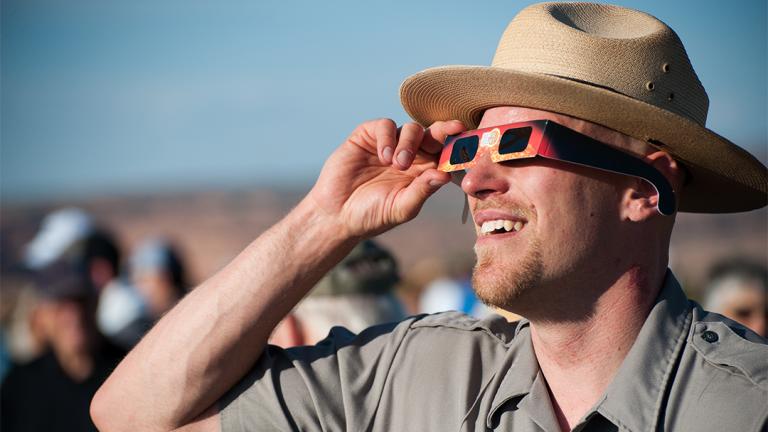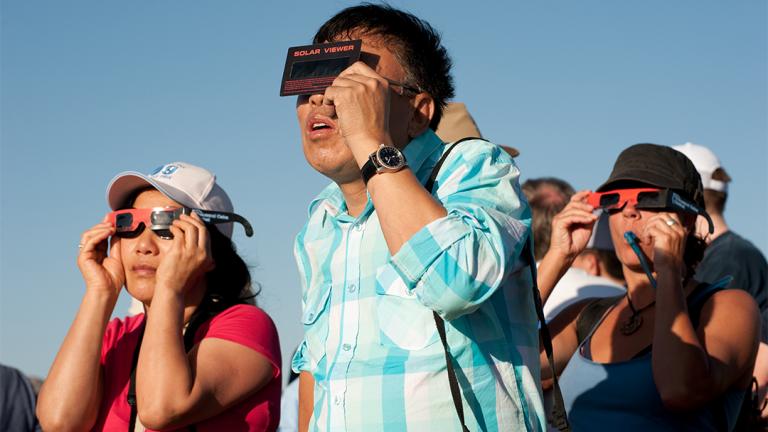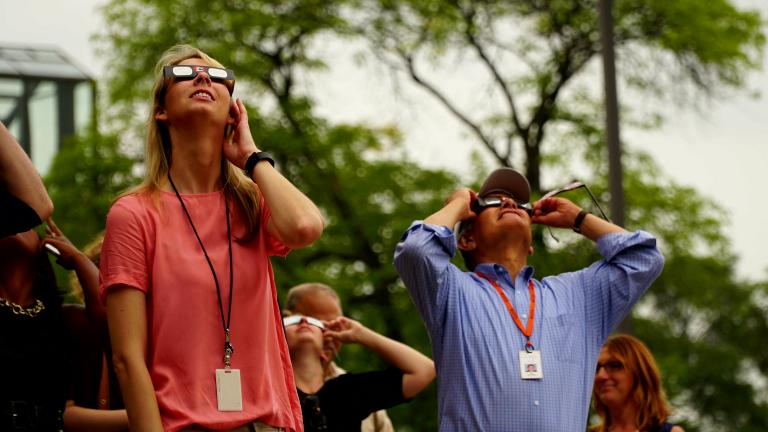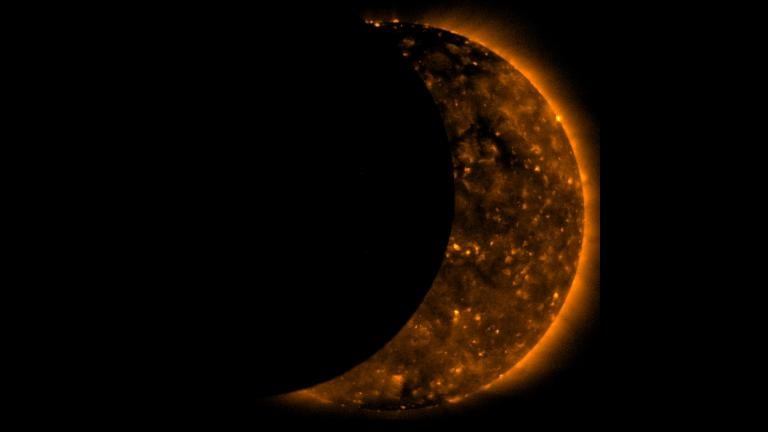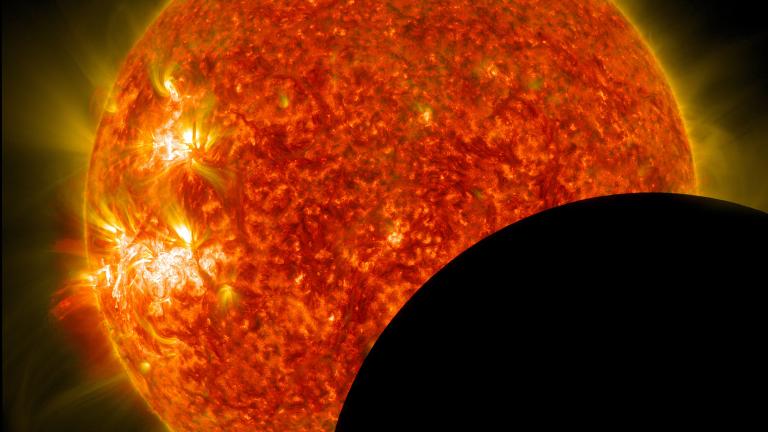Wednesday’s “super blue blood moon” marks the convergence of three lunar events, but it will hardly be visible to viewers in Chicago.
eclipse
Thousands of people swarmed to Carbondale to watch the solar eclipse on Monday. And thousands hit the road as soon as the celestial event was over.
About a dozen different species were under close watch during the event as scientists looked for any changes in behavior.
Chicagoans from all neighborhoods and walks of life came out of the shadows to fix their appropriately covered eyes on the skies.
The last time a total solar eclipse spanned the continental United States from coast to coast was 99 years ago. Thousands joined in the Adler Planetarium’s celestial celebration to mark the occasion.
Onlookers were treated to a clear view of the solar eclipse in Carbondale. “It was a festival sort of atmosphere,” Amanda Vinicky said. “You literally had a beer tent, carnival rides, and band, a whole lot of very excited people wearing garb for the solar eclipse.”
Animal behavior experts noticed the biggest change in one particular species during Monday’s eclipse: humans.
Adler Planetarium astrophysicist Lucianne Walkowicz joins us from the eclipse epicenter in Carbondale.
Over the course of civilization, eclipses have been met with fear and superstition. How humans have reacted to—and explained—eclipses throughout history.
Videos of the eclipse from Chicago’s Adler Planetarium and multiple spots across the U.S. from NASA, plus safety tips, Chicago watch parties and more.
Like scientists across the country, Lincoln Park Zoo’s animal experts will spend Monday’s solar eclipse carefully observing the zoo’s residents for changes in behavior.
What can happen if you look at the sun for too long, even if it’s partially or almost fully blocked? We speak to an ophthalmologist about how to safely watch the eclipse.
Participating in the eclipse is a way for “people to demonstrate that they want to understand the world scientifically,” DePaul sociologist Roberta Garner says.
What did you see during the historic event? Add your images to our stellar online gallery.
Join us online for live coverage from Chicago’s Adler Planetarium starting at 11:40 a.m. Heading outside? Here are 12 places in and around Chicago where you can celebrate the eclipse.
All you need to know to get ready for the coming total eclipse of the sun.

